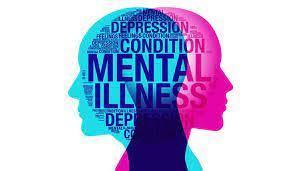How Stress Affects Your Physical Health: Examining the Mind-Body Connection
How Stress Affects Your Physical Health: Examining the Mind-Body Connection
Have you ever noticed how sometimes your body seems out of balance when you’re stressed? Life’s stressors have an impact on more than just your head; your body also experiences them. The mind-body connection refers to this interesting relationship between our minds and bodies. Let’s examine how stress, a typical occurrence in our lives, may affect our physical health.
What is Stress?**
Stress is similar to that obnoxious guest who unexpectedly appears. It is the result of your body’s response to difficulties, demands, or changes in your life. Every once in a while, feeling anxious is acceptable, but if it persists for too long, it can cause issues.
**
The Body-Stress Connection**
Consider your body as a team in which each member has a distinct function. Your brain releases chemicals like cortisol and adrenaline when stress comes knocking at the door. These hormones function as messengers, telling your body to be ready for battle. Your breathing may begin to quicken, your heart may begin to race, and your muscles may get rigid. This is how your body prepares to deal with whatever is stressing you out.
**
Long-Term Stress vs. Short-Term Stress**
Short-term stress, such as an unexpected exam or a short deadline, might be beneficial. You become more focused and quick to respond. However, stress might develop into a problem if it lasts for several weeks or months. Too much time spent in overdrive by your body might wear out your systems.
The Domino Effect of Stress
Think of tension like a row of dominoes falling. A challenging day at work could be the first domino. But as tension rises, more dominoes start to fall. You might experience poor sleep, dietary changes, and depressive or nervous feelings. These are all indicators that stress is having an impact on your body and mind.
Loss of Physical Health
Let’s get down to business and discuss how stress might affect your physical well-being. For instance, you can feel the tension in your heart. Over time, prolonged stress may cause high blood pressure or heart issues. Chronic stress can make your immune system, which aids in the prevention of infections, weaker. This suggests that you might get colds more frequently.
**
Digestion and Stress**
Additionally, your digestive system may malfunction. Stress may cause bloating, stomachaches, or even an increase in bathroom visits. You see, stress can disrupt the delicate bacterial equilibrium in your gut, which can result in stomach issues.
**
Pain and Stress**
Have you ever experienced tension headaches or tense muscles? It’s not just you. Your muscles may stiffen up as a result of stress, which could cause headaches, backaches, or jaw pain.
Getting Out of the Cycle
You don’t have to get caught in the stress cycle, which is wonderful news. Stress management and reduction are easy to do. You can reduce your stress by engaging in regular exercise, deep breathing exercises, and meditation. It can also be easier to deal with your anxieties if you talk to friends, family, or a professional.
Keep in mind that your mind and body are like closest friends who never leave each other. Your body pays close attention when stress comes calling. Long-term stress can result in physical health problems, but short-term stress is like having that friend drop by for a quick visit. By managing your stress, you can maintain your mind and body in good condition.
Taking care of yourself is crucial in today’s hectic environment. Take a big breath, talk it out with someone, and give yourself a break the next time stress comes knocking at your door. Your body and mind will appreciate it!**
#mindbodyconnection #stressandhealth #physicalmentalwellness #stresseffects #mdium #health
Be the first to post a message!
